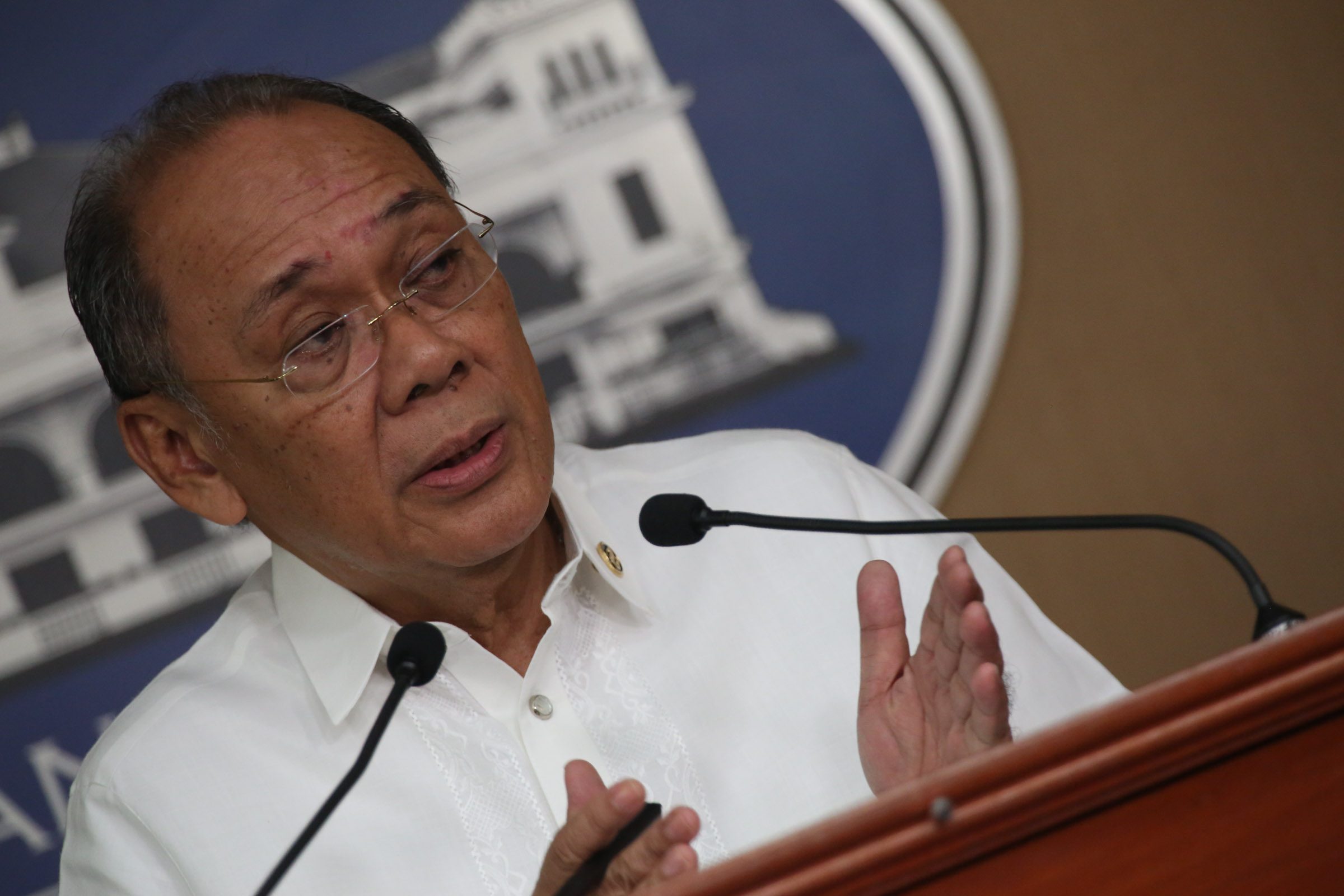SUMMARY
This is AI generated summarization, which may have errors. For context, always refer to the full article.

MANILA, Philippines – Malacañang on Saturday, January 28, reaffirmed its commitment to defend the country’s rights over the West Philippine Sea (South China Sea), after a recent survey showed that most Filipinos want the government to do so.
However, the Palace also pointed out that socio-political relations need to be considered, especially given the improving ties between the Philippines and China under the administration of President Rodrigo Duterte.
Results of a Pulse Asia survey released on Friday, January 27, showed that 84% of Filipinos want the government to assert rights over the West Philippine Sea, following the decision of the Permanent Court of Arbitration favoring the Philippines in July 2016.
Among respondents, 44% said they “very much agree” and 40% said they “agree” with the statement that the Philippine government should assert its claim. Only 3% disagreed, while 12% indicated uncertainty when they said they “may agree or disagree”.
The highest rating for agreement was recorded in Metro Manila at 92% (with 52% saying they “very much agree” and 40% saying they “agree”). The lowest rating of those who agreed was in the Visayas at 77%. Mindanao registered 87%, while Luzon recorded 83%.
In an interview with state-run radio dZRB on Saturday, Presidential Spokesperson Ernesto Abella echoed the sentiments reflected in the survey.
“Of course, we agree totally, 100%, that we should stand by our rights regarding the West Philippine Sea…Even the President himself has said the same thing – [to stand] by our rights,” Abella said.
But he added that such assertion “is a matter of timing.”
“We are not giving up anything. Definitely not. That is ours, our rights there, the EEZ [exclusive economic zone]. However, it’s a question of timing and a matter of diplomatic relations,” said Abella.
He said there are many socio-political realities that dictate on timing.
Abella also recognized that protecting the country’s claim on the West Philippine Sea runs parallel to improving ties with China. “We are protecting and fighting for something, and we are also advancing our relationships…Because it’s a reality, we are neighbors so we have to learn how to work with this reality,” he added in a mix of English and Filipino.
Abella then pointed out that this situation is not simply a black-or-white one. “There are really shades of gray there.” He added in Filipino, “And there we could see that the President is an excellent diplomat and politician.”
“His primary concern really is the nation’s interest, but all this has to be done with a wide and determined political will,” Abella continued.
Dealing with nations
In the same Pulse Asia survey, 47% of Filipinos said that the Philippines should explore security or defense cooperation with China and Russia than the United States. The highest rating was logged in Mindanao, at 57%.
Meanwhile, 18% disagreed and 34% said they may or may not disagree with the said statement.
Abella expressed satisfaction with the broadening perspective of Filipinos, given socio-political realities.
As an example, without explicitly mentioning the United States but apparently referring to it, Abella said there have been recent moves by an ally to be protective of its own interests. US President President Donald Trump on Wednesday, January 25 (US time), signed an executive order that said the US was putting up a wall along its border with Mexico.
Under Duterte, the Philippines has, however, been moving to improve ties with China and Russia. Abella said in Filipino, “It seems like the President has a ‘third eye’ and he saw these things, and has seemingly prepared for it.”
Comparing foreign relations to seafaring, Abella said, “Siyempre pagdaan ng malalaking barko eh maalon, so kailangan ‘yung maliliit na mga bangka tulad ng ating bayan ay marunong tumimbang. (Of course, when big ships pass by, they would cause big waves, so small boats like our nation should know how to balance or adapt.) So that’s exactly what we’re doing.“
The survey also showed that Filipinos generally have a great deal or a fair amount of trust for the United States, Japan, and the United Nations, getting 76%, 70%, and 74% trust ratings, respectively.
Meanwhile, China and Russia each got a 38% trust rating, Great Britain received a 39% rating, and the European Union earned a 50% rating.
The poll also revealed that 47% of respondents nationwide believe security and defense relations with the US have been beneficial to the Philippines. A majority in Metro Manila, at 55%, agree with this statement.
The Pulse Asia survey on Filipinos’ views on foreign policy was conducted from December 6 to 11, 2016, with 1,200 respondents. It has an error margin of ±3%. – Michael Bueza/Rappler.com
Add a comment
How does this make you feel?
There are no comments yet. Add your comment to start the conversation.